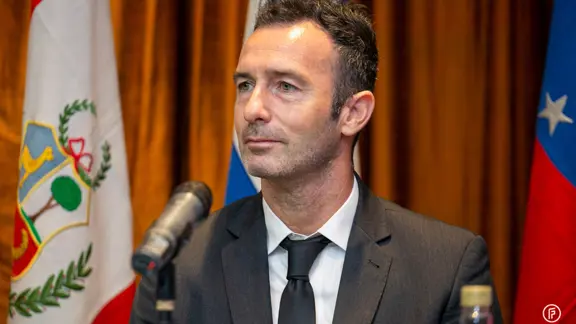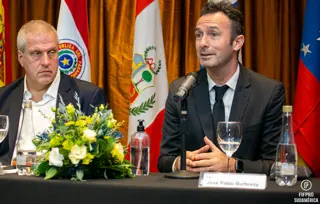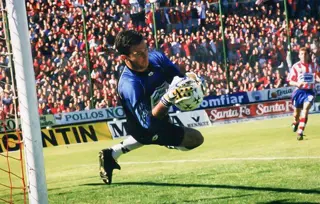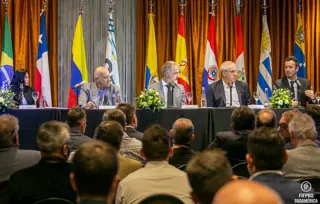News
Pablo Burtovoy: “The culture of each country is vital for educating footballers”

- Pablo Burtovoy, a former goalkeeper, spent his 21 years as a professional footballer in Latin American clubs, playing in countries like Argentina, Mexico, Colombia, Bolivia, Chile, Venezuela and Peru
- He’s now the Director of Education for FIFPRO South America
- He played a decisive role in developing the “Back to School” campaign, which encourages players in South America to continue or return to their education, alongside their sporting activities.
“I must admit I’m hopeful. Fortunately, education in football is a movement that’s getting stronger all the time. For various reasons, men and women players have been realizing the importance of this combination of education and football. Moreover, the new generations optimize their time better than footballers did in my day."
In any case, there’s still an enormous amount of work to do and there are many corners of the region we still have to reach. An Inter-American Development Bank (IDB) report in 2021 revealed that only six out of every ten people up to the age of twenty-five finished secondary school in Latin America. The figures for education among professional footballers in the region are of the same order. So what can we do to enable those forty percent to complete their secondary education and graduate?

At the beginning of March, FIFPRO South America launched a campaign called ‘Back to School’ (“Volver a estudiar”), supported by the Organization of Ibero-American States (OEI), the Argentine players’ union (Agremiados) and the Argentine Football Association.
It’s a campaign by professional footballers in the region to raise awareness, encouraging players and emphasizing the importance of continuing or returning to school.
Not only does it highlight the importance of being educated for life after retirement as a professional footballer, but also for strictly sporting purposes. Nowadays the world’s leading coaches consider that the key to improving decision-making, creating space and enhancing movement and outcomes is actually mental skills. They are looking for intellectual development. And education strengthens precisely this facet.
And then there are other factors specific to each footballer, each country, each national federation and each players’ association that definitely have an impact on the particular case of every player. This is a multiple context that we have to take into account when it comes to developing educational projects in football.

So I always wondered: what can you do to promote education among footballers in such a vast region made up of countries whose realities are so different from each other? The answer is to be familiar with the culture of each country.
During my career as a footballer I was fortunate enough to be able to play for clubs in Argentina, Colombia, Bolivia, Chile, Venezuela, Peru and Mexico. This helped me enormously to get to know their cultures. Purely by chance, it was like doing a university degree. If you take the time to learn from your teammates about their origin, their race, what football means to them in their region, how representative their clubs are, the pride they take in preparing to represent their national teams, then in the end you’ll be able to get a much deeper understanding of the way they think about football and about life. And that’s where you can focus on the best way to bring education to players.
Another decisive factor is valuing the work everyone is doing to help footballers to study, however small that help may be. When the work of those nearby is appreciated, an aura begins to be created there and role models start to appear. This is why it’s crucial that all the training courses for footballers in the region can be given by a professional colleague from each country. It’s an ongoing multicultural construction process whereby education can be provided by a Uruguayan player, a Venezuelan, a Chilean or a Colombian. We have to construct a space in which footballers can educate other footballers.

It’s perfectly possible to go to school and play football in a club. That stuff about timetable clashes and so on is more a matter of words than facts.
Since 2016, when I was called upon to direct the Footballers’ Foundation in the Argentine union Agremiados, I have had an inspiration which is the same one I always try to convey to those who join in projects on education and football: we have in our hands the opportunity to offer these players eight hours a day in the best possible setting: training and school. And what is enriching is not only the strictly ‘academic’ activity but also the social side. Education and football can create the ideal environment for the great majority of footballers.”
“I must admit I’m hopeful. Fortunately, education in football is a movement that’s getting stronger all the time. For various reasons, men and women players have been realizing the importance of this combination of education and football. Moreover, the new generations optimize their time better than footballers did in my day.
